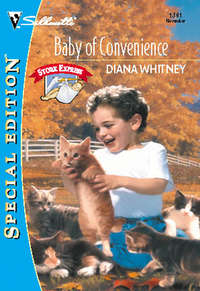
Полная версия
The Raven Master
A breeze swirled through the site, scattering ashes and whipping the few loose hairs that had escaped the binding at his nape. Standing, he absently brushed the long strands from his face, turned into the wind and looked straight at Janine. The grief in his eyes took her breath away.
In less than a heartbeat that intense sadness dissolved into an impassive stare. He nodded an acknowledgment, ducked under the yellow police ribbon haphazardly stretched around the perimeter and sauntered toward the sidewalk. Tucking his hands in his jacket pockets, he gestured toward the fire scene with his head. “How did this happen?”
Janine shrugged weakly. “I don’t know. Since our fire fighters are all volunteers, the investigation team will probably come from Eugene, which is about fifty miles west of here.”
“When is this team expected?”
“I have no idea. Why do you ask?”
“The site is unprotected,” he replied curtly. “When a death is involved, authorities aren’t usually so cavalier about preserving evidence.”
A cold chill skittered down her spine. “How did you know that someone died here?”
“Word gets around, even to newcomers.” His wintry eyes held her captive. “Some say it was arson.”
Although the last comment was issued like an afterthought, Janine was nonplussed by the intensity of his gaze. She moistened her lips, reminding herself that a man so deeply affected by a stranger’s tragedy must be more compassionate than those secretive eyes would indicate. “Small-town gossip tends to be overly dramatic, Mr. Coulliard. The fire was probably started by a spark from the fireplace or an electrical short.”
“It wasn’t.”
“How do you know that?”
Without answering her question, he gazed at the burned rubble. A muscle below his ear twitched. His jaw clenched and beneath his sculpted cheekbones deep hollows suddenly appeared as though the flesh had been gouged away by demonic fingers. Shaded by a thick fringe of darkness, Quinn’s eyes were as cold as frozen ponds and his sharply angled features hardened like a stone mask, revealing a leashed rage that frightened her half to death.
She stumbled backward, her heart pounding wildly.
Suddenly the fearsome expression dissipated and was replaced by one of calm concern. As Janine followed the direction of his gaze, she saw two frightened children cowering behind a tree at the edge of the burned property.
Quinn greeted them softly. “Hello.”
A brown-eyed boy of about nine emerged towing a blond girl who appeared to be a year or two younger. Janine recognized them as Rodney and Sara Drake, who lived a few houses up the block.
The boy nervously returned Quinn’s smile. “Hi.”
After Janine completed the introductions, Quinn squatted down to the children’s level, smiling at the girl who peeked out shyly from behind her brother.
“Sara is a pretty name,” Quinn told her and was rewarded by a happy giggle. He turned his attention to the somber young boy. “I’ll bet you take good care of your sister, don’t you, Rodney?”
The boy nodded. “I have to, ’cause she’s a girl and all.”
An amused twinkle warmed Quinn’s pale eyes and the transformation was stunning. As Janine watched in mute fascination, the man who had terrified her only moments ago now exuded a magnetism that shook her to the soles of her feet.
And she wasn’t the only one affected. Quinn was speaking softly, gesturing toward the burnt house, and both children were listening with a rapt attentiveness that bordered on reverence. “How did you feel last night when you saw the fire?” Quinn asked.
“I was real scared,” Rodney replied quickly, then jammed his hands in his jeans pockets and studied his scuffed sneakers. “Don’t tell my pa, though. He says real men never get scared.”
“Hmm.” Quinn laid a comforting hand on the boy’s shoulder. “Well, I certainly would have been scared.”
The boy peeked up uncertainly. “Really?”
“It’s okay to be frightened. Fear is what makes us cautious and gives us the ability to protect ourselves.”
While Rodney considered that, Sara stepped forward with huge eyes. “Miss Barker was real nice. Sometimes she gave me flowers to take to my mommy.” The girl’s tiny lip quivered as a fat tear slid down her cheek. “Do you think she got scared when the fire came?”
“I don’t know, Sara.” Quinn gently touched the child’s face, wiping away her tears with his thumb. “It’s very sad when someone dies, isn’t it?”
The girl hiccuped and wiped her nose with the back of her hand.
Quinn smoothed the child’s shiny bangs. “Are you afraid that what happened to Miss Barker might happen to you?”
Sara twisted the hem of her T-shirt and nodded.
“Let’s talk about that,” Quinn said softly, sandwiching the child’s small hand between his own large palms. To Janine’s surprise, the girl responded, blurting out her feelings as though she’d known Quinn Coulliard all her young life.
After encouraging both youngsters to express their feelings, he listened intently then responded softly, calming their fears without mocking them. To Janine it seemed as though he’d actually established a kinetic mind-link with the children, and she couldn’t help comparing Quinn’s perceptive interaction with Charles’s rigid intolerance.
Charles. Even the silent echo of her ex-husband’s name brought exquisite sadness and regret. It seemed a lifetime ago that she’d been deeply in love, looking forward to starting a family with the man who had stolen her heart. During the courtship, Janine had been honest with Charles about her desire for children. In retrospect, however, she realized that he’d never specifically responded to her excited chatter about having a houseful of babies; still, she hadn’t expected that Charles would deliberately deceive her.
But he had deceived her, and the betrayal had been shattering.
A childish voice broke into the sad memories. “We gotta go home,” Rodney was saying. “Ma gets real worried if we’re gone too long. Are we gonna see you again, Mr. Coulliard?”
Quinn stood. “Sure. I’ll be around.”
Smiling, Rodney waved goodbye, then took his sister’s hand and led her up the hill toward their house.
When the youngsters had disappeared from view, Janine tilted her head, regarding Quinn with new respect. “You’re very good with children.”
He shrugged, avoiding her gaze. “I like kids. They haven’t lived long enough to be cynical.”
“Only a confirmed urbanite would be so jaded.” She regarded him curiously. “Obviously you haven’t spent much time outside of the asphalt jungle. Do you have friends here in Darby Ridge?” When he didn’t answer immediately, she forced a teasing smile. “Was that a difficult question?”
He looked at her then, but his eyes were veiled and unreadable. “Will I be evicted unless I can provide local references?”
She flushed, realizing that her probing questions were less than subtle but was unable to quell her mounting curiosity. “Of course not. I just wondered how long you’ve been in town and what brought you here in the first place.”
His gaze never wavered. “I was passing through yesterday afternoon and liked the scenery.”
Janine doubted that. On any map of Oregon’s Cascade Mountains, Darby Ridge was a nondescript dot on a winding broken line and much too secluded to be stumbled across. Besides, despite his transient appearance, the mysterious drifter’s eyes seemed to reflect a higher purpose.
Still, she decided to keep her questions to herself. If Quinn Coulliard wanted to maintain his privacy, she could respect that. After all, Janine had her own sordid secrets.
Squaring her shoulders, she smoothed the canvas tote. “If I don’t get to the grocery store, dinner will consist of packaged macaroni and carrot sticks.”
“That sounds fine.”
She laughed tightly. “Unfortunately the other tenants aren’t as easy to please. Without a three-course meal and appropriate dessert, I’m afraid there would be an ugly revolt.”
“You’re exaggerating, of course.”
“Not at all. The last time dinner was a disappointment, Edna spent the entire meal praying for my salvation, Jules sulked like a thwarted child and Althea cursed my cooking with words that could only be defined by an X-rated dictionary.”
“Well, my new neighbors sound quite colorful.” His eyes gleamed with sudden interest. “Tell me more.”
“Words wouldn’t do them justice. Besides, you’ll meet them all at dinner.” She glanced at her watch and groaned. “Which won’t be served until midnight unless I get to the store.”
“Of course.” Since Quinn was blocking the sidewalk, he took the hint and politely stepped aside. “I’ll see you this evening, then.”
“Yes. This evening.” With a weak smile, she turned away and hurried up the hill.
When she’d disappeared over the rise, Quinn’s smile flattened. He wasn’t the least bit pleased that his lovely landlady had caught him viewing the fire scene. The woman had too many questions, and his evasive answers hadn’t fooled her one bit. He’d seen the curiosity lurking in those soft brown eyes, recognized the skeptical crease of her brow. She didn’t trust him. That was too bad. A curious woman was an annoyance but a suspicious one could jeopardize his mission.
Quinn hoped that Janine Taylor wouldn’t interfere with his plans, but if she did, he’d have to deal with her—and she wouldn’t much care for his methods.
CHAPTER TWO
The memorial service for Marjorie Barker took place on Friday morning, two days after the fire. An overflow crowd packed the tiny chapel while the Reverend Mr. Weems delivered an eloquent if somewhat protracted eulogy. Prayer books were opened. Respects were paid. Amens were spoken. Flowers were laid on a snow-white casket. Finally the congregation spilled into the courtyard, gathered at linen-draped refreshment tables and transformed the solemn occasion into a social event.
Finding shade beneath a flowering jacaranda, Janine alternately fanned herself with the mimeographed remembrance card and sipped sticky sweet punch from a paper cup. After being forced to breathe the repugnant combination of Edna’s overpowering cologne and stale body odor from an anonymous pewmate, Janine decided that fresh air had never smelled quite so wonderful. The service had droned on forever, and she hoped Marjorie would forgive her gratitude that it was finally over.
With a quick glance at her watch, Janine fretted about the chores awaiting her back at the boardinghouse. There hadn’t been time to clean up after breakfast, and if she didn’t tackle the mound of laundry piled in the basement, there would be no clean linens for the weekend.
Although she longed to slip away early, there was a certain decorum to be maintained, and she certainly didn’t want to become fodder for the rumor mill that, if hushed whispers and shocked expressions were any clue, was already in full gear.
Shifting restlessly, she scanned the groups of gossiping matrons and blustering, somber-faced men. Some shook their heads sadly; others touched their throats or covered their mouths in wide-eyed disbelief. Janine didn’t have to hear the muted conversations to know what was being said. Thanks to Jules’s uncanny ability in wheedling information from “informed sources,” she’d heard everything last night at the dinner table.
According to Jules, Marjorie’s body had been found in bed with her hands neatly folded on her chest. Since preliminary investigation revealed that the fire had started in the kitchen, it was presumed that the woman had set a pot on the stove, then dozed off and been overcome by smoke as she slept.
The explanation, although perfectly logical, had been deeply disappointing to Jules, who was still reluctant to relinquish the notion that Marjorie had been the victim of foul play. In fact, he’d been quite annoyed that the Barker family hadn’t permitted an autopsy, and he’d stubbornly insisted that a proper medical examination would have proven his theory that the woman had been murdered by the mob.
At that point Althea had called Jules a disgusting ghoul; he had retaliated by pointedly questioning Althea’s lineage. Edna, having experienced a remarkable recovery from her previously inconsolable grief, had ignored the ruckus and solicitously dished a second helping of pot roast onto Quinn’s plate.
Such unpleasant arguments between tenants were unfortunately all too common, although Janine silently conceded that the presence of her newest boarder had probably prevented the discussion from becoming even more volatile. Not that Quinn had said anything particularly soothing. In fact, he’d spoken very little, evading personal questions with nondescript replies and inspecting his tablemates with his trademark intensity.
The other tenants had nonetheless responded to the newcomer by displaying a restraint that for them was significant. Except for an occasional lapse, Althea’s vocabulary had been uncharacteristically civil, and although Jules had basically ignored Quinn, Edna’s nurturing frenzy had barely fallen short of actually tucking a napkin under the poor man’s chin.
It had been an interesting evening, to say the least.
Dabbing her moist forehead, Janine considered another sip of punch, then discarded the notion, stepped behind the jacaranda and discreetly poured the nauseating beverage at the base of the tree. She patted the bumpy trunk, then glanced up and noticed a couple standing apart from the crowd, apparently engaged in an intense conversation.
Although the woman was facing away from Janine, that brittle, red-gold bouffant was unmistakable. Besides, only Althea Miller would be crass enough to wear a leather miniskirt and cropped midriff top to a funeral.
The inappropriate attire wasn’t particularly surprising but the fact that Althea was attending services for a woman she’d professed to despise was a bit of a jolt, and the man to whom she was speaking seemed inordinately uncomfortable. He was a distinguished gentleman, perhaps in his mid-fifties, and would have been quite attractive but for his pained expression. Althea’s spine was as stiff as a broomstick, a desperate rigidity that was quite uncharacteristic.
Janine watched intently as Althea fumbled in her bag then dabbed at her face with a tissue. The man glanced around as if assuring himself that he couldn’t be overheard before bending forward to issue a terse statement. Instantly Althea’s head drooped and her shoulders quivered. The man said something else, then spun on his heel and strode away.
Extending her hand, Althea called after him—it sounded like “please wait”—but he didn’t respond. In a moment he’d disappeared and Althea stood alone, trembling.
Janine was both stunned and alarmed by the emotional exchange, never having seen Althea so obviously upset. Before she could react, however, Edna hurried over and hustled her distressed neighbor away. After a moment’s hesitation Janine followed and found the two woman conversing softly behind a screen of oleander.
“I hate the bitch,” Althea murmured, ineffectually wiping at the wet mascara smudges under her eyes. “I’m glad she’s dead.”
Clucking softly, Edna took the woman’s hands. “Satan covets the righteous and leads them astray with temptations of the flesh. ‘Every tree which bringeth not forth good fruit is hewn down, and cast into the fire.”’ Rolling her eyes upward, Edna added a heartfelt amen.
Althea lifted her chin defiantly and uttered a succinct oath.
The older woman paled three shades. “God forgives your blasphemy, child, as you must forgive Marjorie. She is with her Lord now and has been absolved of sin.”
Janine frowned, completely perplexed by the odd exchange. Barely two days had passed since Edna had become apoplectic at the mere suggestion that Marjorie Barker might have been less than saintly, so this unexpected discussion of sin, temptation and rotten fruit was startling to say the least.
The conversation’s content, however, was none of Janine’s business. Even when motivated by concern, eavesdropping was unacceptable, so she quietly backed away from the peculiar scene, turned around and rammed into a male chest.
Gasping, she whirled around and laid a hand over her racing heart. “You startled me.”
“So sorry,” Jules replied uncontritely. “It was a lovely service, wasn’t it?”
“Uh…yes, lovely,” Janine murmured, still distracted by what she’d just overheard.
“And, I might add, so are you.”
“Hmm?”
“You look lovely this morning.”
“Oh.” She self-consciously smoothed the skirt of her teal print sundress. “Thank you.”
Jules dusted his immaculate suit jacket, palmed his slick hair and flashed a Continental smile. “The bonnet is quite fetching, although it seems a shame to conceal those beautiful mahogany tresses.”
Janine managed to stifle a moan. The quaintly described “bonnet” was a straw sun hat with a ribboned crown, and the “beautiful mahogany tresses” consisted of nothing more than a weedy thatch of dirt brown hair cut into a blunt, Buster Brown bob.
Although she really tried to be tolerant of Jules’s penchant for testing out new personalities, the peculiarity grated on her nerves. Last week, for example, the impressionable young man had watched three John Wayne movies on television, then swaggered through the boardinghouse calling everyone “pilgrim.” Today, however, his exaggerated formality and jauntily tilted chin appeared to be a pitiful parody of David Niven.
Of course, lots of people enjoyed performing impersonations, but with Jules the practice seemed more an eerie transformation than a quirky party trick.
At any rate, she was considering the most expedient way to extract herself from the unwanted conversation when she glanced toward the refreshment table and saw the man to whom Althea had been speaking. Leaning to her right, she peered around Jules’ slender frame, hoping for a better view.
He followed her gaze and frowned. “Who are you looking at?”
“That gray-haired gentleman standing beside the punch bowl.”
“Gregore Pawlovski?”
Janine straightened. “Do you know him?”
“Vaguely.” Disdainfully arching a brow, Jules brushed invisible lint from his lapel. “Althea said that he was once a European diplomat but apparently he retired last year.”
“So he’s a friend of Althea’s?”
“Ah, much more than a friend.” Jules leaned forward and whispered in her ear. “They were doing it.”
Blinking, Janine stepped back. “Doing what?”
“You know.” Jules smirked and offered a sly wink.
Janine frantically fanned herself and stared at the ground. “I see,” she murmured, regretting that she’d ever brought the subject up and quite ready to drop the entire matter.
Jules wasn’t. “Althea was quite mad for Gregore and had actually deluded herself into thinking that he would marry her. Can you believe that?”
Curiosity overcame social propriety, and she couldn’t keep herself from asking what had happened. Leaning forward, Jules spoke in a conspiratorial whisper that gave her the shivers. “Pawlovski and Marjorie Barker were having an affair. It was really quite sordid, and Althea was livid, simply livid.”
Janine was appalled by the lurid accusation. “How on earth could you possibly know that?”
“I have my sources.”
“Well, I don’t believe it. Marjorie Barker was a lovely woman.”
He shrugged. “She was a whore.”
“Jules!”
“Marjorie had sex with lots of men. She wanted to have sex with me, too, but I refused because she was unclean.” His dark eyes glittered strangely, as though pleased to have shocked her, yet when she showed her displeasure by turning away, he seemed genuinely grieved. “Have I offended you?”
She didn’t bother to deny it. “Yes, you have.”
“Naturally, a true lady would be distressed by the discussion of such indelicate matters.” He wrung his slender hands. “You have my word that it will never happen again. Please forgive me.”
Sighing, Janine massaged her throbbing temple. “It’s all right, Jules. Let’s just forget about it.”
“Of course.” He tugged his collar. “Perhaps it would be best not to mention this, uh, unfortunate incident to Grandmère. We wouldn’t want to upset her.”
Without further response, Janine walked away, trying to ignore the sinking sickness in the pit of her stomach. She’d always been aware that Jules was different; now she wondered if he was mentally unstable, because only a very sick person would make up such disgusting lies.
It never occurred to her that he could have been telling the truth.
Althea slammed furiously into her room. She flung her purse into the wall, threw herself across the unmade bed and beat the rumpled pillows with her fists. “Damn him!”
Clutching the bedclothes, she sobbed until the pillow slips were stained with runny mascara and soggy blotches of orange Pan-Cake makeup. Marjorie Barker had gotten just what she deserved, and someday Gregore—the two-timing bastard—would burn in hell along with his cheap whore.
Sniffing, Althea sat on the edge of the mattress and grabbed a handful of tissues from a box on the nightstand. She blew her nose and wiped melted makeup from her face, then miserably dropped the wadded tissues on the floor. She stared at her bare knees, riddled by guilt and feeling worthless.
In spite of her crude bravado, she’d been sickened by the fire’s fatal aftermath. The worst part was that the Barker woman had died for nothing. It was a shame, a lousy stinking shame. A wasted tragedy. But there was no sense blubbering about something that was over and done with.
With a final wipe of her wet eyes, Althea went to the closet-door mirror and critically examined her full-length reflection. Sucking in her tummy, she turned sideways and inspected her curvaceous profile. Not bad, she decided. Her boobs didn’t droop, her butt was nice and tight, she could still crack walnuts with her thighs and her legs were to die for. Of course, her waist wasn’t quite as sleek as it used to be, but what the hell. All in all, she wasn’t too damned shabby for a broad pushing the big four-five.
So why didn’t Gregore want her any more?
Biting her lower lip, she tangled her fingers in her brassy hair and fought a renewed surge of tears. It wasn’t supposed to happen like this. Now that his precious mistress was dead, Gregore should have returned to Althea for comfort. Instead he’d called her filthy names and said that he never wanted to see her again.
The rotten son of a bitch. God, she loved him.
Janine propped the basket of soiled towels against her hip and descended the narrow stairs into the damp cinder-block basement.
The cavernous space served as the manor’s main storage and service area, housing tools, hardware and miscellaneous supplies along with the boiler, water heater and circuit boxes. A raft of fluorescents suspended from ceiling joists slid into the dungeonous blackness but Janine didn’t bother to turn them on. The laundry corner was situated close to the stairway and cheerful shafts of sunlight from two high windows provided adequate illumination for the task at hand.
After dumping the soiled bedclothes, she absently massaged the small of her back and mentally calculated the number of loads represented by the mountainous pile. With any luck, she’d be finished by midnight. Depending, of course, on how long she chose to stand there feeling sorry for herself instead of loading the stupid washer.
After all, the first residents of this magnificent manor scrubbed sheets on a washboard, lugged wet laundry to a sagging clothesline, then crossed their fingers and prayed that a few minutes of sunshine would break through the dreary clime. From that perspective, stuffing linens into a modern machine and pushing a button didn’t seem a particularly daunting task.
Smiling to herself, she dragged a length of rumpled percale from the pile and daydreamed about how life must have been at the turn of the century. There would have been hardships, of course. Still, she liked to imagine the lazy pace of those times and picture a gentle life-style unaffected by the pressures of a modern culture that espoused expectations so unrealistic that disappointment—and failure—was inevitable.







